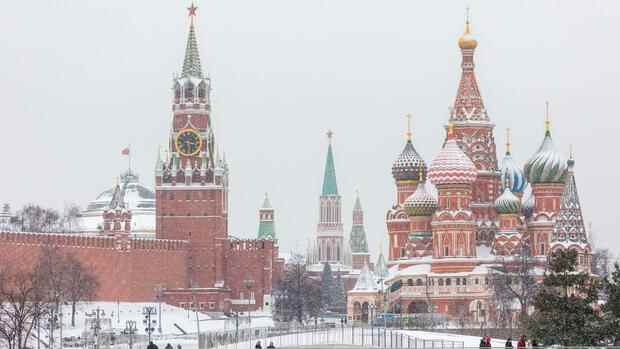In Putin’s world, business is losing its innocence. There’s blood on the money companies make in Russia.
The peace dividend has been used up. The Russian president’s war of aggression against Ukraine not only presents European politics with the greatest test since the fall of the Berlin Wall, but business is also losing its innocence in Putin’s world.
Many companies have read the signs of the times and are ending their cooperation with the warmonger nomenklatura in the Kremlin. Western corporations are withdrawing from Russia almost every hour, selling their shares and closing offices and factories. From oil multinationals to airlines and sovereign wealth funds to football clubs – there is a mass exodus from Putin’s empire.
Only German energy companies are once again having a hard time deciding between business and ethics. This ducking away is just as untenable as holding on to the Nord Stream 2 Baltic Sea pipeline for far too long.
When it comes to war and peace, there is no moral no man’s land for companies and managers. There must be no more business with Putin and his oligarchs. There’s blood on the money that’s made from it.
“Unsustainable Position”
“Our position has become untenable,” said Norwegian energy group Equinor after exiting the Russian joint venture. BP and Shell accept billions in write-offs for their exit from the Russian state-owned companies Rosneft and Gazprom. Shell called Putin’s war a “senseless act of military aggression”.
One would also wish for such clear words from those German managers who have maintained their business relationship with Putin for a long time and only canceled a meeting with the despot “due to deadlines” shortly before his marching orders. After all, the Committee on Eastern European Economic Relations later condemned Putin’s attack on a sovereign state.
At the beginning of February, the chairman of the body, Oliver Hermes, complained about the “war clamor” in the media, with which an invasion of Ukraine was being proclaimed.
After the “turning point” declared by Federal Chancellor Olaf Scholz, German companies will not simply be able to continue as before. John Chipman, head of the renowned International Institute for Strategic Studies (IISS), has recommended that companies think about their “foreign policy”. It’s not just about the financial risks associated with exposure to authoritarian states like Russia and China.
Above all, it is about reputation as one of the most important company values.
>> Read also: Lavrov rumbles, Shoigu threatens – and the first oligarchs complain about the sanctions
German companies are faced with the problem of breaking off ties with Russia.
Against withdrawal from Russia: Economic relations are an important bond
German companies have been involved in Russia for decades. It would be negligent for them to sever all ties.
by Juergen Flauger
What a strong signal. Companies like BP and Shell are withdrawing from Russia without any ifs or buts – and accepting huge losses in the process. The corporations are flanking the political sanctions with which they are hitting Russia’s President Vladimir Putin in his most sensitive spot.
But why don’t all companies do that? Is it still possible to do business in a country that is waging a war of aggression against a neighboring country?
Yes, you can – and it even makes sense to keep the ties alive even in these times. Putin is not Russia – and it cannot be ruled out that the president, who completely miscalculated his war of aggression, will soon be history. The West should not completely cut its ties to Russia – this applies above all to economic relations.
Do not fundamentally question every Russian engagement
The primacy lies with politics. Germany and the EU must show a clear edge these days. The federal government in particular has hesitated for far too long to take a decisive stand against Putin. The German economy should also take a clear position against Putin’s war. Unfortunately, far too few managers do that these days. That is to be criticized.
But to fundamentally question business’s involvement in Russia right away is going too far. German companies have been involved in Russia for decades. Of course because they want to make money. But they have also made a valuable contribution to our energy supply.
Interest in gas fields and pipelines has given us access to Russian gas in the past, and unless we have alternatives, that should continue to be the case in the future.
More on the subject:
However, German companies also produce locally or have sales offices, employ thousands of people and are therefore part of society. On the one hand, you have the chance to carry our values to Russia.
On the other hand, they also have responsibility for thousands of Russians who are themselves suffering under the Putin system. It would be negligent to cut all connections.
Rather, what is decisive is what the companies make of this connection, how self-confident they appear locally, but also in Germany. Economic relations with Russia are not the problem.
They are a problem when companies are so dependent that even in a war of aggression, managers and owners are unable to voice criticism clearly and openly.
More: Investors abroad amplify withdrawal from Russia ETFs – Russian stocks in free fall
